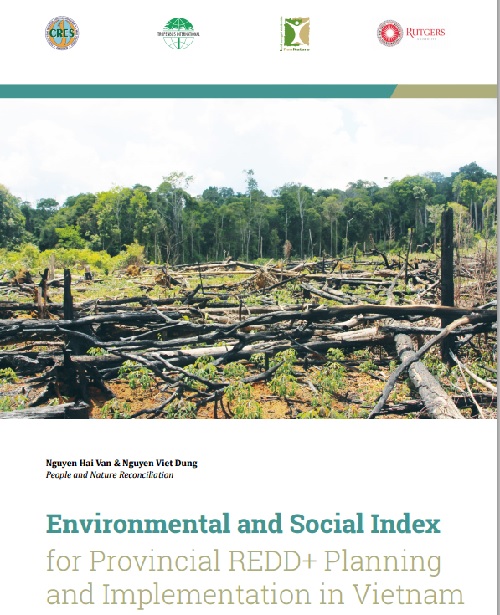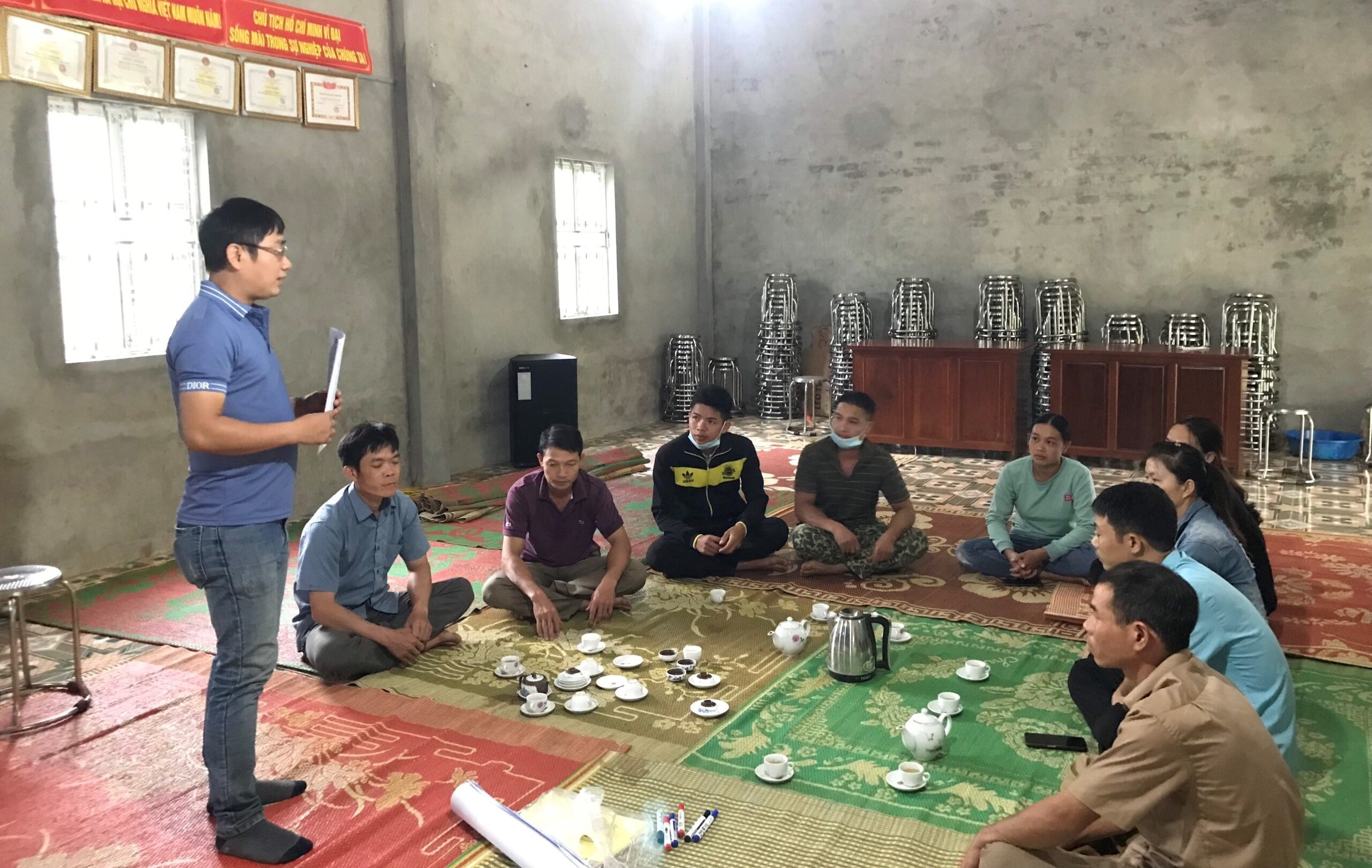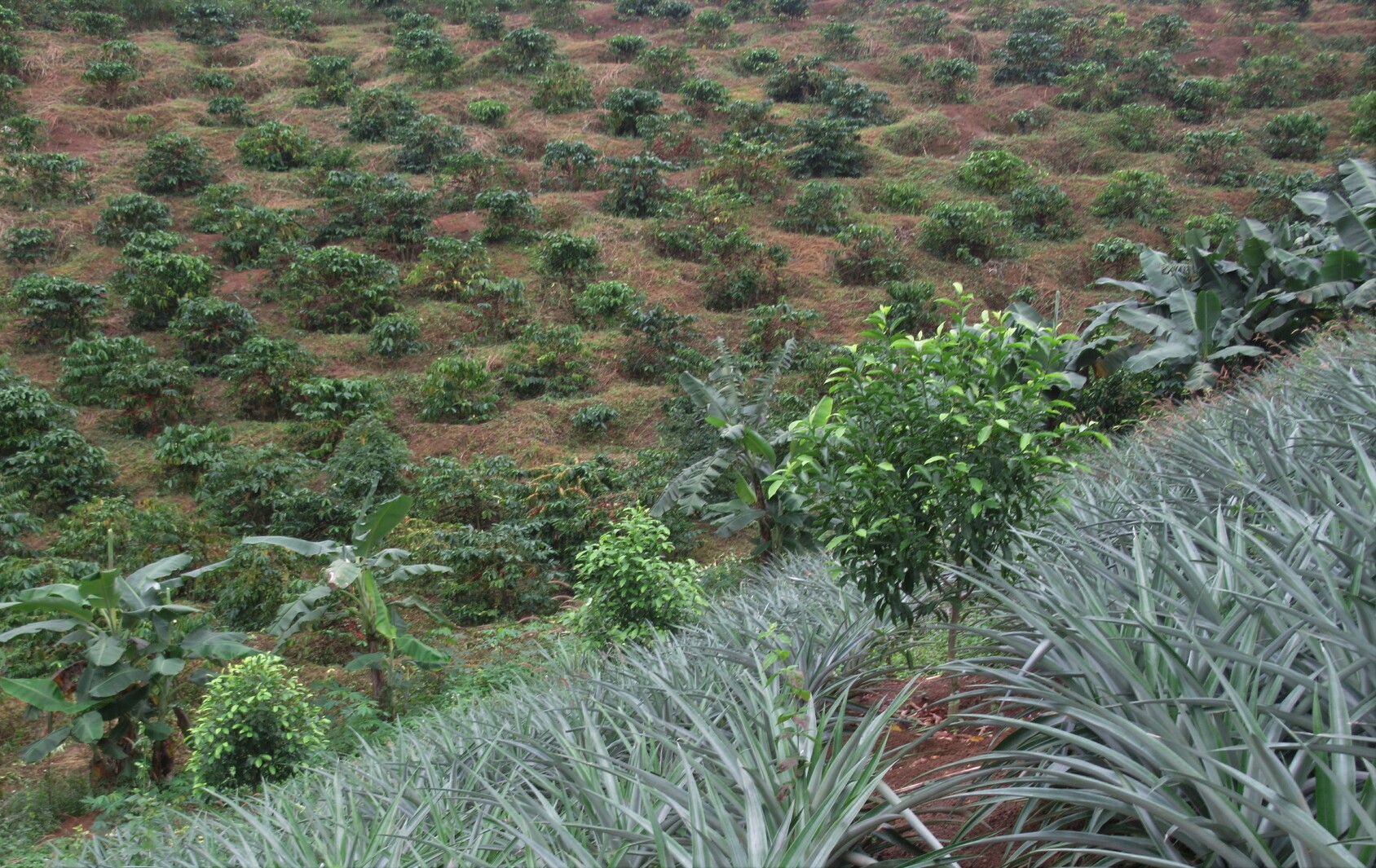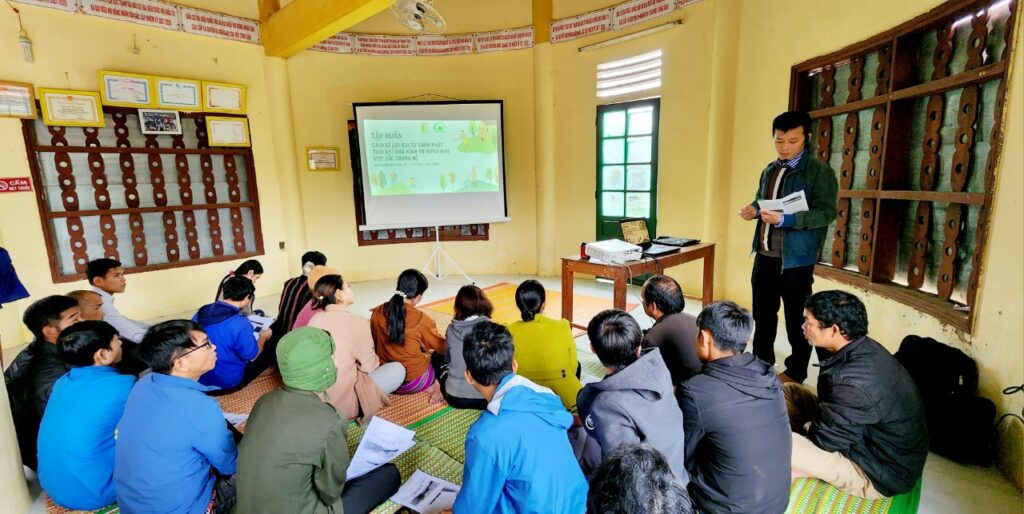This study, conducted by PanNature with financial and technical support from the NTFP-EP program, primarily aims to evaluate the impact of community consultation processes and mechanisms ensuring community participation in recognizing traditional rights in Vietnam, with a particular emphasis on Free, Prior, and Informed Consent (FPIC). The study focuses on regions characterized by mountainous terrain and forest landscapes.

Environmental and Social Index for Provincial REDD+ Planning and Implementation in Vietnam
Reduction of emissions from deforestation and forest degradation (REDD+) is an international initiative emphasizing the role of forests in mitigating climate change. It aims to generate environmental and social benefits, including sustainable forest management, increase in forest carbon sequestration, and improvement of local livelihoods. However, many studies and discussions have demonstrated that REDD+ may also have potential risks due to changes in land use planning and the right to access resources; therefore, it may negatively affect local livelihoods, especially forest-dependent ethnic minority groups. During REDD+ implementation, the Cancun Principles and/or other voluntary standards guide the REDD+ process as well as the application of social and environmental safeguards. In Vietnam, in order to implement the National REDD+ Action Plan, the government requires that all provinces develop a Provincial REDD+ Action Plan (PRAP). However, there are no specific guidelines on identifying advantages or risks involved in the processes of choosing a location, planning, implementing, and monitoring. Therefore, a tool measuring local readiness in terms of policy and institutional setting, environmental and social advantages, as well as constraints in the forestry sector would assist policy makers and authorities in making more suitable and realistic REDD+ interventions.

In this context, the Provincial REDD+ Environmental and Social Index (RESI) was developed by the by People and Nature Reconciliation (PanNature) in collaboration with the Center for Natural Resources and Environmental Studies (CRES, Vietnam National University in Hanoi), and Tropenbos International in Vietnam (TBI), with technical support from Dr. Pamela McElwee (Rutgers University, USA). Developed from 2012 to 2015, this index assesses local environmental and social conditions and highlights particular advantages and potential risks in implementing REDD+ at the provincial level. Moreover, the RESI measures and compares a province’s readiness in implementing eventual REDD+ projects and activities. Understanding a province’s readiness is especially important for investors (governments, non-governmental organizations, or private companies) when surveying and determining the best locations to implement REDD+ as well as integrating safeguards to minimize potential risks.
Read online:
Or download: PDF File (6.17Mb)



